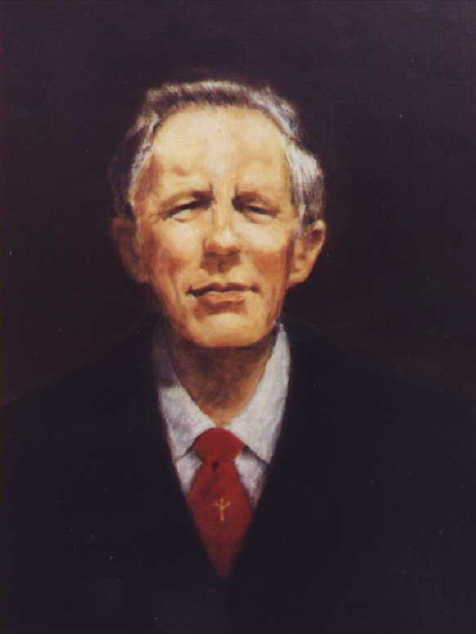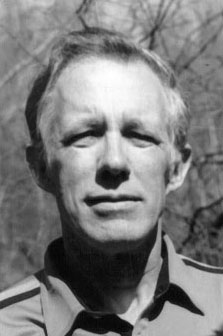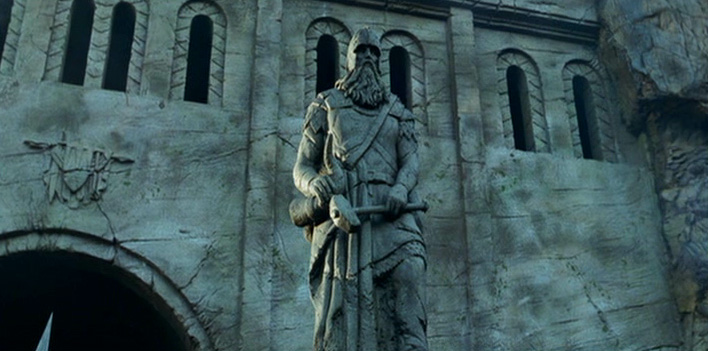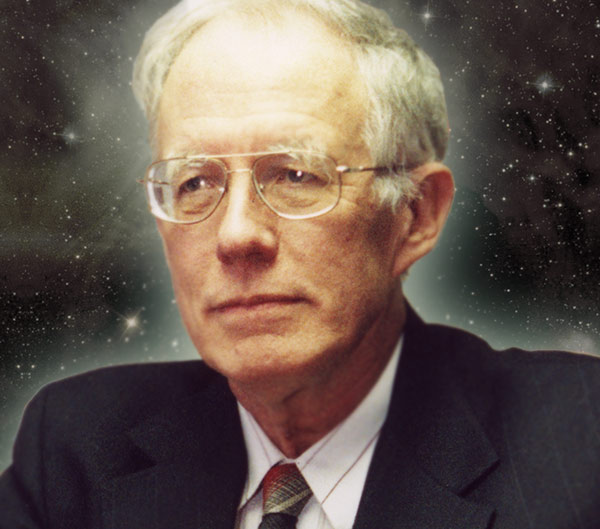Through the subject of music I realized recently that the poison that has infected westerners is much deeper that I expected when, about two years ago, I discovered white nationalism. Under the title “Why the West Will Go Under” at National Vanguard (no. 74, 1980), William Pierce published a gem that brings light into the subject of the disease in the westerners’ soul that is allowing the extinction of the race.

The life cycle of a civilization is an extraordinarily complicated affair, subject to a thousand changing influences. It is all too easy for analysts, by focusing their attentions on various of these influences, to reach differing conclusions as to the state of health of the civilization they are studying. This is as true of Western civilization as of any other. Yet there are trends, clearly observable in the West today, which, if not reversed, must inevitably dominate all other influences and bring about the demise of the West. Furthermore, certain of these lethal trends have already reached the point where they are, by any means likely to come to hand, irreversible.
This is a difficult truth for most Americans to accept. Their country is still rich and powerful, and their average standard of living is falling at only a bit over five per cent per year. Whites still constitute a majority of the population, life is still reasonably secure, and the Federal government still seems to have a fairly firm grip on the affairs of state.
It seems to most Americans that life must surely go on indefinitely much as it has during their lifetimes, with a few ups and downs, to be sure, but with no permanent discontinuity in sight. Yet, consider these things:
❦ The immigration of non-Whites into the nations of the West—Australia, Canada, England, Germany, Sweden, and the United States, among others—has grown from almost nothing prior to the Second World War into an avalanche which increases its strength from year to year, is fed from a virtually inexhaustible source, and shows every sign of continuing to grow.
More than one million non-Whites are immigrating—both legally and illegally—into the United States alone each year, shifting the population balance in favor of the non-White minorities already in the country by more than half a per cent per year—more than two per cent for each succeeding presidential election.
The organized minority voting blocs—Blacks, Mexicans, Jews, and Orientals—are determined to keep the balance shifting in their favor until the White majority in the United States has become a minority. They are solidly backed in this determination by the Christian churches, the largest labor organizations, the majority of the nation’s political leaders, and even a substantial portion of the White electorate.
The few labor bosses who initially opposed uncontrolled immigration are dropping their opposition and falling into line with the others. Big business, including those sectors of it relatively free of Jewish control, is in favor of continued non-White immigration as a means of maintaining a plentiful supply of relatively inexpensive labor. Even those politicians with constituencies which are still predominantly White are afraid to oppose non-White immigration for fear of incurring the hostility of the increasingly powerful minority pressure groups.
In view of these political realities the U.S. government—not just the Carter administration, but previous administrations as well—has virtually abandoned any effort to enforce its own immigration laws. While special “emergency quotas” for Soviet Jews and Indochinese “boat people” are instituted to allow more non-White immigrants into the United States on a quasi-legal basis, the Immigration and Naturalization Service and its enforcement arm, the U.S. Border Patrol, have had the rug pulled out from under them in their efforts to check the flood of illegal Black immigrants from the Caribbean and Chicanos from Mexico.
❦ The U.S. Army is now 30 per cent Black, with Black enlistments running at 35 per cent and growing. The Army will become more than one-third Black during the 1980s. When Chicanos, Orientals, and other minorities are taken into account, the non-White segment of the Army will pass 40 per cent before the end of the decade.
The Blacker the Army grows, the more the re-enlistment rate of White Army personnel dwindles, and the greater becomes the danger of a “tilt,” as has happened in thousands of formerly White schools and neighborhoods when gradual Black encroachment reached a critical level, at which most of the remaining Whites suddenly fled.
Even without a “tilt,” however, the effectiveness and dependability of the U.S. Army will almost certainly continue to decrease. And what is true of the Army is becoming increasingly true of the other armed services. The embarrassing degree of collaboration between the U.S. Marine hostages in Tehran and their Iranian captors is a hint of the level to which morale in the Marine Corps has already sunk.
Rock-bottom military morale is the norm for other Western nations as well. Since World War II the emphasis has been on making sure the troops know their rights, rather than on making sure they will fight courageously and tenaciously and will maintain discipline and obey orders, no matter what.
Certainly, Soviet political and military strategists took this factor into consideration before they made the decision to occupy Afghanistan, and they will undoubtedly assign even more weight to it in making future decisions.
As depressing as the situation is among the military rank and file, it is even worse among the higher military leaders. A weeding-out program during the past 30 years has virtually eliminated career officers above the rank of captain who are willing to express any disagreement with the racial program imposed on the U.S. armed services. Eliminated with them has been any realistic hope of a military solution to America’s internal political and racial problems.
❦ The number of persons in the United States receiving all or a substantial portion of their income from government sources—in the form of salaries, pensions, or doles—now accounts for 54 per cent of the total population, and it is growing. The 46 per cent who work in the private economy to support the others are becoming relatively fewer each year.
Now, there certainly must be a few White idealists among that 54 per cent majority of government dependents who will vote against the hand that feeds them—but almost certainly not enough to make the drastic changes required to reverse the lethal trends sapping the life of the West.
Even when much more severe economic conditions in the years ahead open the eyes of more people to future dangers, the chances are that the majority on the government teat will cling all the more tightly to it. One may talk about taxpayer revolts all one wants, but with each passing year the prospect of a successful one becomes less likely.
❦ Those who are working for the West’s ruin know well the psychology of mass man; they know how tenaciously materialistic he is, how he will cling to his comforts and luxuries at the expense of his honor, his freedom, and even his life, deceiving himself all the while as to his own motives. Perhaps the very best example of this fatal weakness is provided by the behavior in recent years of the Whites of Rhodesia and South Africa, a subject treated elsewhere in this issue of National Vanguard.
It is true that the world—including the rest of the West—ganged up on them; it is true that they are saddled with twice as many Jews, per capita, as the people of the United States; it is true that they were stabbed in the back by the Christian churches, in which they had foolishly placed their trust; it is true that their news media are controlled by the same gang which controls ours. But the fact remains that the Whites of southern Africa have, with their eyes wide open, chosen prosperity over racial integrity. As a consequence, in the long run they shall have neither.
The same shopkeeper mentality which made them fear an economic boycott more than the mongrelizing of their posterity prevails throughout the West. It is the mentality of what historian Brooks Adams has called “economic man”; men of this type have wielded power in the West since the Industrial Revolution, and their values are shared as well by most of the powerless.
The values and way of thinking of economic man may be tolerable for a while in an all-White world, but they are lethal in a world which also includes Jews. In the very near future they will be just as lethal for America and Europe as they have been for White Rhodesia.
In view of these trends—trends which transcend party politics and the short-term fluctuations of changing government administrations, trends which show every promise of remaining unchanged in the years ahead, indeed, of becoming increasingly worse—there can be little room for debate as to whether the West will go under. It has already passed the point of no return in its descent. The water is up to our necks, and the only question is, when will it reach our noses.
The ship, in other words, is going down, and it is going down not just because the captain doesn’t know how to sail and because there is a gang of saboteurs aboard who have opened the sea cocks, but also because it has become irreparably unseaworthy.
Now, this is a very important conclusion. It separates the National Alliance from the right wingers, who believe there’s still time to save the ship (or, if there isn’t, all is lost and so there’s no point in doing anything); from the liberals, who believe that the more water the ship takes on the better it will sail; and from the mass of voters, who, although they have a dark suspicion that something is seriously wrong and a nagging fear that the captain doesn’t know what he’s doing, are much more concerned that their feet are getting wet than that the ship is going down.
The most important distinction for the Alliance is the first one. The right wingers see the value of the West in its outward forms: its governments, its economic systems, its life-styles. When those are broken up—when the ship of state goes down—there is, for them, nothing left.
But the National Alliance sees the value of the West in its biological essence, in the human genetic material which was responsible for the building of Western civilization—and which has the capability of building another civilization to replace it. When the ship goes down, there will be lots of passengers in the water, and they will drown. What is important is to make certain that some passengers—the right ones—are in lifeboats, with a compass, oars, and directions to the nearest land.
That is the primary task of the National Alliance now: building lifeboats and organizing lifeboat crews. In many respects the work is not unlike that of trying to keep the ship from going down or trying to throw the captain overboard and install a new one: that is, “working within the System” by organizing yet another pressure group to compete with the minority pressure groups, or preparing for an armed assault on the System.
In any event, one must find, recruit, and motivate an elite minority among the mass, and one must then use that minority to build a viable, functional organization. Whether that organization eventually works within the System or takes up arms against the System or works at building something to replace the System when its own internal contradictions have destroyed it, many of the organizational requirements are quite similar.
Nevertheless, it is important to understand what the outcome of current historical processes will be, because there are differences, subtle and not so subtle, in the way one prepares for that outcome.
Not the least of these differences is in outlook: the degree of optimism with which one goes about the task at hand. The events of recent years must be depressing in the extreme for intelligent conservatives and right wingers. Unless they are blind to what is happening in the world, they must feel utterly overwhelmed by the prospect of trying to patch the old tub up and keep it afloat. For those of them who are racially conscious, the realization that each passing year brings us a population that is more mongrelized, an electorate that is more degraded in its sensibilities, must be terribly discouraging. How can one salvage such a mess?
To be sure, after accepting the view that the mess can’t be salvaged and that one shouldn’t even try, the prospect is no less grim. The breakdown of order, the unleashing of anarchy, is destructive of true human progress even under the mildest of conditions. In the racially mixed urban jungle of America it will be indescribably terrible—more so because it will almost certainly be a descent in many steps, rather than the single plunge and “crash” about which right wingers fearfully talk.
There will be a grisly justice in that most Whites who have collaborated with the enemies of the West in sinking it will themselves be drowned. It is almost amusing to contemplate the fate of the White gun-control advocates in America’s cities in the days to come, when they will be even more at the mercy of roving gangs of Black thugs than they are today.
And the rich White liberals in their exclusive suburbs—the fashionable writers, the ACLU lawyers, the pulpit prostitutes, the organizers of fund-raising dinners for trendy causes, the socially conscious coupon clippers who won’t own stocks in corporations doing business in South Africa, the news editors who conscientiously excise any mention of race from crime stories, the school board members who pretend that all is well in the racially integrated hells they supervise, the overpaid bureaucrats, the coke-snorting sophisticates who party with the new non-White elite and plan to ride high while their race goes down—will fare no better when the pets they have so long boosted as the “equals” of working-class Whites come surging out of the cities in their multihued millions. The ravages of these pampered non-White hordes in the years ahead will make the sadistic butchery of the Manson gang of the last decade seem like good, clean fun in comparison.
Unfortunately, the innocent and the wholesome will perish along with the guilty and the degenerate; the racially conscious and the racially valuable will go down with the deracinated egoists and the half-breeds. Nature’s justice operates at the species and subspecies levels.
Nor will anyone evade the suffering ahead, neither those who perish by it nor those who survive it, neither the grasshoppers nor the ants. It is said that suffering is good for the soul; if this is true, Westerners can look forward to a great deal of spiritual improvement.
But whether the maxim is true or not, the suffering is necessary. As long as he is moderately comfortable, the average man will not change his ways. Only when existence becomes utterly intolerable and there is no alternative can he be persuaded to do what he should have done from foresight and through self-discipline at the beginning. That is his unalterable nature, and it is why democracy is such a catastrophe.
And who will survive to be the founders of a New Order? No one can say, on a person-by-person basis. But if one understands the nature of the tragedy that is upon us, one can state some general guidelines.
The first thing to understand about the going under of the West is that its more dramatic elements, the violence and the bloodshed, are not the really essential elements. As already mentioned, one should not anticipate a “crash” but rather a continually accelerated worsening of conditions. Those who head for the mountaintops with stores of canned goods to wait out the storm will be as disappointed as those who think they can head it off by praying or voting.
The essential aspect of what is happening to the West is spiritual. It is decadence which has sealed the fate of the West, not the birthrate in the Third World. It is the absence of a common purpose which has sapped the West’s viability, not just the scheming of the Jews. It is the loss of racial consciousness which has left the West defenseless, not the growing strength of our enemies.
What is important is that the corruption of the West’s spirit will continue in the years ahead—perhaps for decades—while the increasing anarchy, the more frequent breakdowns of order and flareups of violence, the economic disintegration, will be only incidental. There undoubtedly will come a great bloodletting, a time of mass throat-cutting and mass rape, when the West’s internal enemies will have free rein for a while. But the West will already have sunk before then.
And most of the inhabitants of the West will have sunk too, to the point where little of value will be left to be lost in the bloodletting. This is a point worth emphasizing again: the majority will perish with the civilization to which they are inseparably bound.
The problem is not to cull out the mongrels, the Judaized, the degenerates, the moral prostitutes from a healthy mass, so that the cull can be destroyed and the mass saved. The problem is to pick the few who embody the best of what the West once was and to take the necessary measures to see that that which they embody does not perish with the mass.
Those who would survive—more correctly, those who would have a hand in determining which genes and which values survive, for the time scale of the West’s sinking is such that no individual now alive can be sure of living to see the new age dawn—must have these qualities:
They must be both willing and able to fight for the right to determine the shape of the future; the meek and the disarmed will vanish without a trace.
They must be free of the superstitions and prejudices of this age; those who are mentally bound to this age will go down with it.
They must be pure in spirit and strong in will; this is the age of egoism and materialism, of self-indulgence and permissiveness, but the passage into the new age demands both selflessness and self-discipline.
They must be united in an organization which combines their strengths and focuses their wills; in this age of atomized individuals, where each person is submerged in the mass, without identity and without power, only those who are united can prevail.
They must be motivated by a single purpose, the overwhelming importance of which is always foremost in their minds; it has been the purposelessness of this age on which the West has foundered, but the new age will be illuminated and shaped by a common purpose transcending all other considerations: namely, the purpose of bringing forth a higher type of man and attaining thereby a higher level of consciousness in the universe.





